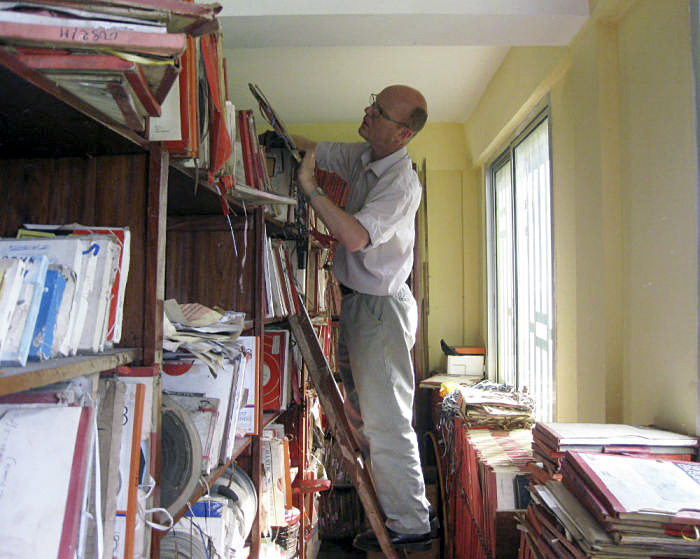Saving the endangered sounds of West Africa
Thanks to the tenacity of Dr Graeme Counsel, an alumnus of the Faculty of Arts at The University of Melbourne, over 9,000 songs from the West African nation of Guinea are now publically available for anyone to listen to worldwide.
In 1958, the nation of Guinea in West Africa declared its independence from France and embarked on a remarkable journey to reinvigorate its indigenous culture. Led by a progressive and charismatic President, Sékou Touré, the Guinean government invested heavily in the arts and introduced several key policies which were radical for the time.

The government paid musicians to make music, it bought them their musical instruments, it built state-of-the-art recording studios, and it was the first government in Africa to release music on its own recording label.
These policies help elevate Guinean music to the forefront of music of Africa. With the death of Sékou Touré in 1984, however, it all came crashing down. His policies were abandoned and the government archives were ransacked and left in neglect.
The British Library recognised the importance of preserving the music archive, and through their Endangered Archives Programme I was the recipient of over A$100,000 in funding. The British Library recently announced the launch of the archive through the British Library Sounds website. Over 9,000 songs that were preserved, digitised and archived in Guinea are now available, and are the first recordings that the Endangered Archives Programme have presented to the public.
Dr Graeme Counsel is now Lecturer in Ethnomusicology, Melbourne Conservatorium of Music, at The University of Melbourne.